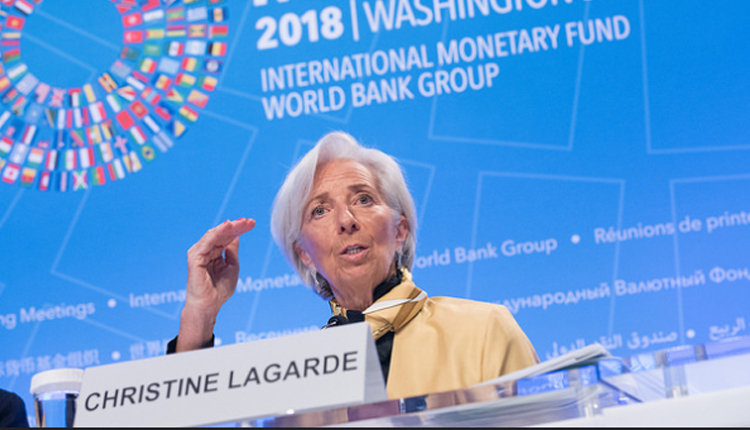The ongoing tensions over international trade are the biggest economic risk to the eurozone, said managing director of the International Monetary Fund (IMF) on Thursday.
Though the euro area enjoyed an economic expansion “above potential” in 2017, “the momentum is slowing down a bit at the moment, Christine Lagarde, managing director of the IMF told reporters in Luxembourg, adding that it is likely the Fund will be “modestly” lowering its economic forecasts in July.
The Fund doesn’t expect the economic slowdown to be “sharp,” partly because monetary policy will continue to support growth in the 19-member region. But, according to Lagarde, there’s a series of economic risks. The first of them is trade tensions.
“First on the list of risks is clearly the series of trade tensions that has been initiated by the tariff increase on steel and aluminium,” Lagarde said, referring to the actions of U.S. President Donald Trump’s administration.
Trump announced in March he would be putting a 25 percent tariff on steel imports and another of 10 percent on aluminium imports. Despite a temporary exemption, the European Union, and therefore the euro zone, became subject to those tariffs at the start of June.
In retaliation, the European Union is implementing as of Friday new duties against U.S. goods, such as orange juice, sweetcorn, peanut butter and blue jeans.
Lagarde told CNBC that the problem is not the direct macroeconomic impact, as this is “in the range of 0.1 percent here, 0.1 percent there,” but the impact on confidence from the tensions.
“It’s the trend that’s worrying and it’s the breach in confidence that undermines relationship,” she said.
Lagarde added that “retaliation, escalation, if that happens because then you’re talking about higher macroeconomic impacts and, second, the undermining of confidence that has presided over the relationship of partners under the rules-based system.”
Higher duties on goods becomes an even greater problem in the current economic environment, where oil prices are increasing.
“My particular concern also addresses the poor countries that have had the benefit of improved growth over the last couple of years, where commodity prices are picking up again, where it’s really phenomenally important for them, and even in countries whether they are advanced, or otherwise, it is always the poor people that suffer the most as a result of those barriers or trade tariffs,” Lagarde told CNBC.
Source: CNBC
